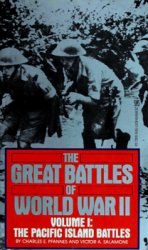Huerta, realizing that a positive response from the United States was crucial to his long-term survival, cabled Taft on February 18, 1913, “I have the honor to inform you that I have overthrown this government, the forces are with me and from now on peace and prosperity will reign.” Huerta assumed that since the United States had embraced Diaz, it would embrace him.24
The U. S. business community in Mexico welcomed Huerta, feeling the country needed a new strongman and that Huerta would fill that role. The U. S.-owned Mexican Herald, the newspaper catering to the English-language community, made the following front-page comment after the coup: “Viva Diaz! Viva Huerta! After a year of near anarchy a military dictatorship looks good to Mexico.” Ambassador Wilson recommended the recognition of Huerta. However the State
Department, rather than following its usual policy of recognizing de facto governments, made recognition dependent on Huerta making concessions and demonstrating his ability to protect U. S. lives and property.25
Unfortunately for Huerta, his government had not received U. S. recognition by March 4, 1913, when Woodrow Wilson, a former political science professor at Princeton, assumed the presidency. He believed that Christian virtues were as applicable to the conduct of foreign affairs as to personal conduct. This led him to remove Ambassador Wilson (no relation to the president) whom he felt was morally implicated in Madero’s murder.26
President Wilson’s efforts to apply what in the abstract were noble principles produced contradictory and often unexpected results. On the one hand, Wilson believed that each nation should determine its own destiny. At the same time, he had a strong desire to shape Mexico so that it met his standards of decency and democracy. In November 1913, when he was asked to explain his Mexican policy, Wilson replied, “I am going to teach the Spanish American republics to elect good men.”27
In applying his interpretation of morality, Wilson refused to recognize Huerta’s government. In his 1913 State of the Union Address, Wilson explained this refusal:
There can be no certain prospect of peace in America until Gen. Huerta has surrendered
His usurped authority in Mexico; until it is understood on all hands, indeed, that such pretended governments will not be countenanced or dealt with by the Government of the United
States.28
In addition to non-recognition, President Wilson used his control over arms sales to undermine Huerta. Initially, under the policy inherited from Taft, arms could legally be sold only to the Mexican government, thus preventing arms sales to rebels. To end the supply of arms to Huerta, on August 17, 1913, Wilson decreed an embargo on all arms sales to Mexico. This, however, had an unanticipated effect. Huerta, who controlled several ports, could buy arms on the international market. The Constitutionalists trying to oust him controlled no ports and therefore suffered because of the embargo, despite sympathetic U. S. citizens smuggling arms across the border.29
After Huerta dissolved the Mexican Congress in October 1913, Wilson threw his full support to the Constitutionalists. Huerta’s subsequent actions further soured relations with the Wilson administration. He substantially increased the oil tax imposed by Madero. This reflected financial necessity more than nationalism. Given the U. S. failure to recognize his government, Huerta increasingly turned to Europe, and especially Britain, for loans and investment capital, which further estranged him from the United States.
In November 1913, Wilson announced, “If General Huerta does not retire by force of circumstances it will become the duty of the United States to use less peaceable means to put him out.” To further undermine Huerta, Wilson applied pressure on the European powers that had recognized Huerta to suspend loans and arms sales to Mexico.30
When it became apparent that the arms embargo was benefiting Huerta, Wilson complained that it “hinders and delays the very thing that the government of the United States is now insisting upon, namely, that Mexico shall be left free to settle her own affairs and as soon as possible put them on a constitutional footing.” On February 3, 1914, Wilson ended the embargo on arms sales to Mexico, and the Constitutionalists began to buy copious amounts of arms and ammunition from the United States.31
Throughout his presidency, Wilson came under intense pressure from railroaders, oilmen, and cattle barons such as William Randolph Hearst to intervene directly in Mexico to restore peace, order, and security. Wilson would decline, noting, “I have to pause and remind myself that I am the President of the United States and not of a small group of Americans with vested interests in
Mexico.” Some of the factors making direct intervention unattractive were: 1) its high financial cost; 2) the worsening of diplomatic relations throughout Latin America that interventions produced;
3) the diplomatic embarrassment created outside of Latin America; and 4) the inability to guarantee that direct intervention would achieve even short-term objectives.32
The major U. S. oil producers joined the effort to oust Huerta. At this point, they preferred Carranza, whom they considered more pro-American than Huerta. The oil companies refused to pay taxes to Huerta and paid them to Carranza. Such “taxes” would be paid to Carranza even before his troops occupied the area where the oil wells being taxed were located. Doheny’s company alone apparently gave Carranza $685,000.33
Wilson took concrete action to oust Huerta in the spring of 1914. This action followed the arrest on April 9 of eight U. S. sailors from the U. S.S. Dolphin who were attempting to buy gasoline. They had unwittingly landed their small boat in a restricted zone in Tampico, a port under Huerta’s control but besieged by Constitutionalists. The arrested sailors were released unharmed after ninety minutes, with apologies from the port commander and an expression of regret by General Huerta
Himself.34
In response, Rear Admiral Henry Mayo, the commander of the U. S. naval squadron at Tampico, demanded that the Mexicans hoist the U. S. flag on shore and salute it with twenty-one guns. The matter was referred to General Huerta, who replied that the U. S. flag would be saluted if U. S. forces would then salute the Mexican flag. At the time, he wryly commented that it was odd that the United States should demand a salute from a government it did not even recognize.35
The U. S. flag had yet to be saluted by April 21, 1914, when U. S. troops landed in Veracruz. Although the landing has generally been associated with the arrest of the sailors in Tampico, as Secretary of Navy Josephus Daniels later wrote, “The purpose of the landing was accomplished in the weakening and the undoing of Huerta’s reign of terror.”36
The landing was timed to prevent the German steamer Ypiranga from unloading a shipment of 200 machine guns and 15 million cartridges destined for Huerta. The Wilson administration felt that if Huerta obtained the arms, it would prolong the killing of Mexicans and that if the United States ever intervened, the arms would be used against Americans. Secretary of Navy Daniels’ message to Rear Admiral Frank Fletcher, anchored off Veracruz, was brief and to the point. It stated: “Seize the custom house. Do not permit war supplies to be delivered to Huerta government or any other party.”37
Even though the Mexican commander at Veracruz ordered Mexican troops not to oppose the landing, volunteers and cadets at the naval academy resisted the Americans. Cannons on U. S. ships were used to silence the Mexican defenders. Before the U. S. forces took control of the port, seventeen Americans and 126 Mexicans had been killed. The intensity of the fighting is indicated by the awarding of fifty-five Medals of Honor to members of the landing force—the most ever awarded for a single engagement.38
The Veracruz landing had several unintended effects. Huerta played the anti-gringo game, declaring, in effect, “Either you support me or you are pro-gringo.” The Ypiranga landed at Puerto Mexico (today Coatzacoalcos) and delivered the arms to Huerta. The landing inflamed antiAmerican feelings and led to the stoning of the Mexican Herald and the U. S. consulate in Mexico City. Elsewhere in Mexico, U. S. flags were burned. Thousands of U. S. citizens, including many who had established small farms, left Mexico fearing an outbreak of anti-American violence.39
Carranza, in a display of the nationalism that would bedevil Wilson for the rest of the decade, denounced the landing as a violation of Mexican sovereignty. On April 23, 1914, in response to this criticism, the Wilson administration imposed an arms embargo on the Constitutionalists. On May 16, after Carranza moderated his anti-American rhetoric, Wilson allowed the shipment of arms to ports such as Tampico that by this time was in Constitutionalist hands. Allowing arms shipments to ports, but not across the U. S.—Mexico border, clearly favored Carranza, who controlled Tampico, over Villa. Wilson never explained his decision, which has been attributed to the influence of John Lind, Wilson’s special representative to Mexico, who favored Carranza. Also, historian Friedrich Katz has suggested that Wilson may have been trying to maintain rough parity between Carranza and Villa so he could play them off against each other and influence the outcome of the Revolution.40
While the landing at Veracruz failed to deny Huerta the arms on the Ypiranga, it did have its intended effect. The U. S. occupation of the port denied the Huerta administration customs revenue, hastening its collapse. The United States collected and retained customs duties while it occupied the port.
Eventually Wilson concluded that Huerta would not call democratic elections, so he convened an international conference to facilitate regime change. From April 22 to July 5, 1914, the conference met at Niagara Falls, Ontario. Delegates sent by Wilson and Huerta met with the ambassadors of Argentina, Brazil, and Chile. These countries offered their good offices to help resolve the conflict. Wilson had hoped to use the conference to remove Huerta and to provide an alternative to the Constitutionalists, whom he viewed as too nationalistic.41
Once again, Carranza’s nationalism confronted Wilson. The Mexican leader refused to participate in the Niagara Falls conference, declaring he would “never be made a party to proceedings which place the election of a President of Mexico in the hands of the Washington government.” On June 1, Wilson embargoed arms shipments to Carranza to pressure him into allowing the conference to choose a provisional president for Mexico. The conference was finally halted when it became obvious that Constitutionalists would achieve a military victory over Huerta, despite the arms embargo.42




 World History
World History









